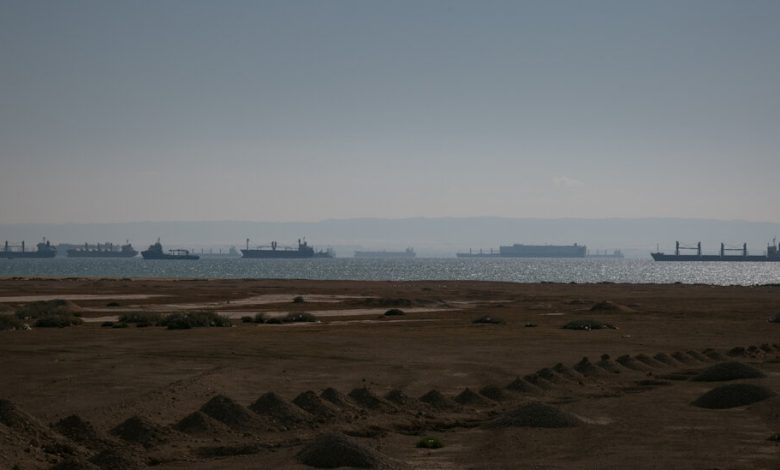BP Pauses Oil Shipments Through Red Sea Amid Fears of Attacks

Global oil prices jumped on Monday after the energy giant BP said it had stopped sending tankers through the Red Sea, a vital shipping lane which has become an increasingly dangerous route because of drone and missile attacks targeting merchant ships launched by the Houthi armed group in Yemen.
The announcement by BP raised fears of further disruption to shipments through the Suez Canal, a major conduit for both crude and refined oil products.
The Houthis, which control much of northern Yemen, have been staging assaults against ships in the region since the Oct. 7 Hamas-led attacks on Israel. They have threatened all vessels owned and operated by Israel, as well as any ship heading for Israeli ports. Both the Houthis and Hamas, which controls Gaza, are backed by Iran.
“BP has decided to temporarily pause all transits through the Red Sea,” the company said in a statement that referred to “the deteriorating security situation for shipping.”
Over the weekend, military forces of the United States and other countries said they had shot down more than a dozen drones in the area.
Brent crude, the international oil benchmark, rose more than 3 percent in trading on Monday.
As the Red Sea has become a flashpoint, major shipping companies — including Evergreen, Hapag-Lloyd, Maersk and Mediterranean Shipping — have in recent days said they would temporarily stop sending vessels through the area.
A key risk is that if the attacks on shipping persist, oil companies and other shippers may stop using the Suez Canal for an extended period. Such a change could disrupt the flow of oil from countries like Saudi Arabia and Iraq, where BP operates a major oil field, to Europe and elsewhere.
Tankers on their way from the Persian Gulf region regularly travel through the Red Sea to reach the Suez Canal, which serves as a conduit to the Mediterranean Sea. Ships from Saudi Arabia also unload crude into a pipeline called the SUMED that runs from Ain Sokhna, a port and storage area south of Suez, to a terminal near the Egyptian city of Alexandria.
Viktor Katona, an analyst at Kpler, a firm which tracks commodity shipping, said that the volume of oil and oil products flowing through the Suez Canal have already dropped sharply this month, to about one-third of the usual flows.
If a slowdown continues, he said, tankers will need to take the far longer route around the Cape of Good Hope in Africa. In that case, not only would tankers burn more fuel in transit but freight rates and insurance premiums would most likely rise, increasing costs for consumers.
“It’s a pressure piling up in the system,” he said.



